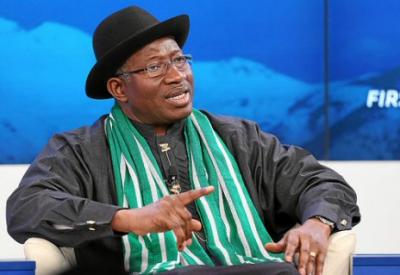 Since Nigeria’s return to civilian government in 1999, the People’s Democratic Party (PDP) has ruled the country almost unchallenged. 25 political parties are registered with the Independent National Electoral Commission (INEC) but only a fraction of them are clearly visible in the political arena. At times, the more popular opposition parties have won gubernatorial elections or secured legislative seats, but these wins have typically only come in regions where these parties are traditionally strong: the South East for All Progressives Grand Alliance (APGA); the North for the Congress for Progressive Change (CPC); the South West for the Action Congress of Nigeria (ACN).
Since Nigeria’s return to civilian government in 1999, the People’s Democratic Party (PDP) has ruled the country almost unchallenged. 25 political parties are registered with the Independent National Electoral Commission (INEC) but only a fraction of them are clearly visible in the political arena. At times, the more popular opposition parties have won gubernatorial elections or secured legislative seats, but these wins have typically only come in regions where these parties are traditionally strong: the South East for All Progressives Grand Alliance (APGA); the North for the Congress for Progressive Change (CPC); the South West for the Action Congress of Nigeria (ACN).
Nationally, the opposition has been no match for the PDP which has swept all three general elections since 1999. Until now.
Winds of change…
The sudden arrival on scene of the All Progressives Congress (APC) could finally provide a viable rival to the PDP in the upcoming 2015 elections. The APC was created in early 2013 when three major opposition parties − the CPC, ACN and All Nigeria People’s Party (ANPP)− came together with a faction of APGA in a broad coalition. This merger brought together about a third of Nigeria’s state governors and national legislators.
Since then, the APC has undertaken an aggressive membership drive which has been rewarded by mass defections from an already crisis-ridden PDP. The state governors of Sokoto, Kano, Kwara, Adamawa and Rivers State − five of the seven governors in the self-styled PDP splinter group, the ‘new PDP’ − joined the APC in November. Barely a month later, 37 members of the House of Representatives left the PDP for the APC, thereby giving the latter a slim majority in the lower chamber. In the upper house meanwhile, 22 senators indicated their interest in crossing over to the APC too, but only 11 have now done so formally. The Nigerian Constitution provides that a legislator shall vacate their seat if they leave the party on whose platform they were elected, unless that defection is as a result of a division in their original party. The defectors understandably held on to this caveat and were able to secure a court order preventing their seats being declared vacant until the court gives a final ruling on the matter.
For now the PDP retains leadership of the Senate – with 61 seats to the APC’s 44 – but, pending the determination of the matter in court, it is possible there will be further defections to the APC, thereby giving the new opposition party a much-desired, if slender, majority in the upper house too.
… or the same old names?
Yet as the excitement over the emergence of a powerful opposition party dies down, there are lingering questions over whether the APC actually brings anything new to the country’s politics. The party is actively wooing former PDP members to its ranks, raising concerns that the same old names will be recycled in the 2015 elections. This issue has caused friction within the new party itself.
Continue reading this article at ThinkAfricaPress.com
By: Dawn DimowoFebrurary 14, 2014
Photograph by WEF/Jolanda Flubacher



